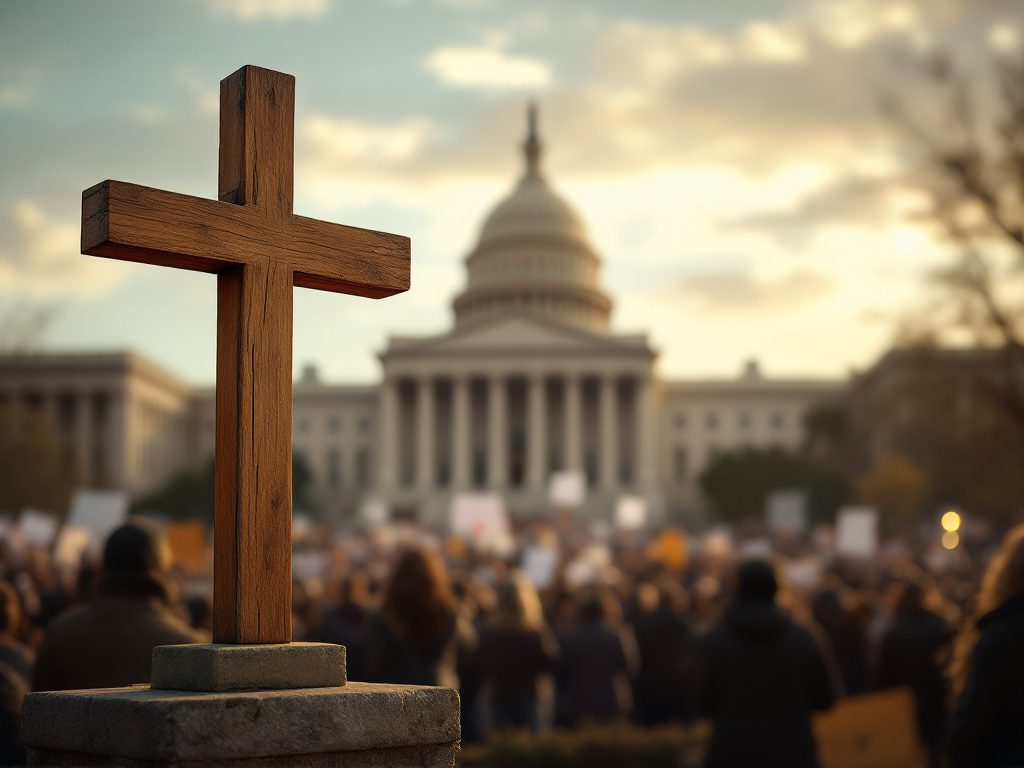The Shadow of Religious Liberty: A Political Tool?
National Day of Prayer ceremonies rarely make national headlines—until a former president uses them to unveil sweeping policy moves. That’s exactly what happened this year, as Donald Trump established a Religious Liberty Commission by executive order, placing Texas Lieutenant Governor Dan Patrick at its helm. The mission? To defend and strengthen religious freedom in the United States, with high-profile faith figures and conservative luminaries like Dr. Ben Carson, Dr. Phil McGraw, Cardinal Timothy Dolan, and Bishop Robert Barron by his side. The commission’s launch was timed for maximum symbolic impact, coinciding with a White House Rose Garden gathering brimming with prayer, patriotism, and no small measure of political theater.
It’s impossible to ignore the timing and context. Trump’s initiative arrives amid fierce cultural battles over whose religious freedoms deserve protection and whose rights might get trampled in the process. According to Harvard Law Professor Laurence Tribe, commissions like these have often served more as political staging grounds than as sincere bipartisan efforts to protect constitutional rights. “The rhetoric of religious liberty can be weaponized to privilege one group’s beliefs over the fundamental liberties of others,” Tribe explained in a recent legal forum.
Once again, the Republican platform finds itself conflating the defense of faith with the advance of a narrow vision for American life. In reality, religious pluralism and the separation of church and state are cornerstones of the American experiment—principles consistently threatened when government entangles itself with faith for political gain.
Inside the Commission: Faith, Politics, or Both?
A closer look reveals a panel more notable for its ideological unity than for the “diverse” perspectives touted at the announcement. Conservative stalwarts and Trump loyalists fill the roster—Dr. Ben Carson as vice chair, Dr. Phil McGraw personally attesting to Trump’s deep convictions, and Cardinal Dolan lending Catholic gravitas. Lt. Gov. Dan Patrick—a figure known as much for fiery religious rhetoric as for policy acumen—gushed, “There has never been a president who has invoked the name of Jesus more than you” in a moment encapsulating the fusion of faith and politics at play.
Yet who does this commission represent? The stated aim is to fortify religious liberty, focusing on issues like parental rights in religious education, school choice, conscience protections, free speech for religious organizations, and safeguarding churches. The commission will also advise the White House and Domestic Policy Council, presenting itself as a vanguard against government overreach. But this particular framing—echoed by groups like the Liberty Counsel and Alliance Defending Freedom—has a fraught history.
Consider the needle the commission must thread: protecting religious liberty without impinging on others’ civil rights—a task that recent conservative policy has repeatedly failed to accomplish. Two decades ago, similar efforts such as President George W. Bush’s “faith-based initiatives” blurred these lines, channeling public money to religious organizations with little oversight or accountability, often marginalizing minority faiths and secular groups in the process. Jane Lee, a religious liberty scholar at Yale Divinity School, cautions that unchecked commissions can become platforms “not for upholding pluralism, but for promoting a preferred religious ideology under the guise of national values.”
None of this diminishes the real and persistent threats to religious freedom in America—anti-Semitic violence, Islamophobia, and church arson remain all too common. But critics question whether Trump’s commission, stacked with political allies and vocal culture warriors, is equipped to offer protections that extend beyond the evangelical or Catholic mainstream.
“The rhetoric of religious liberty can be weaponized to privilege one group’s beliefs over the fundamental liberties of others.” — Harvard Law Professor Laurence Tribe
Beyond that, experts contend that this approach risks making the very idea of religious freedom partisan, ironically eroding the consensus protections that the First Amendment was meant to enshrine.
Whose Liberty? The Progressive Challenge
Beneath the ceremonial language of protection and preservation lies a bolder, more divisive political strategy. Much of the commission’s early rhetoric is aimed at reinforcing conservative priorities—school choice programs that funnel public resources into private religious schools, conscience clauses that allow service denial to LGBTQ individuals, and high-profile pardons for anti-abortion activists. If you are among the millions of Americans whose faith or lack thereof hasn’t always aligned with the religious right, it’s clear: this is not a commission designed to represent you.
Separation of church and state remains under assault when these high-level panels endorse exclusionary policies wrapped in the language of liberty. History is replete with cautionary tales—from the 1920s Scopes “Monkey” Trial to the 2014 Hobby Lobby decision—that demonstrate what happens when religious dogma intrudes on the rights and freedoms of the broader citizenry. According to a recent Pew Research study, majorities of Americans, including many religious believers, endorse the idea that religion should not dictate public policy or serve as a license to discriminate.
Progressive advocacy groups and civil liberties organizations are right to urge vigilance. The challenge is not whether faith should be welcome in public life—it already is—but whether government should favor one vision of faith over the rich tapestry of belief (and non-belief) that defines America. In the words of Frederick Douglass, “I prayed for freedom for twenty years, but received no answer until I prayed with my legs.” Defending religious liberty requires not only robust protection for all faiths—but also a willingness to protect those deemed outsiders by the religious and political establishment.
For those who believe in an equitable, inclusive nation, the answer is not to retreat, but to organize. Our history shows that safeguarding democracy and genuine religious freedom means building alliances across lines of difference, defending the vulnerable, and pushing back when government tips the scale for faith. The Trump commission is a clarion call for progressives: to reclaim the idea of liberty—not as a partisan prize, but as a promise to every American.

